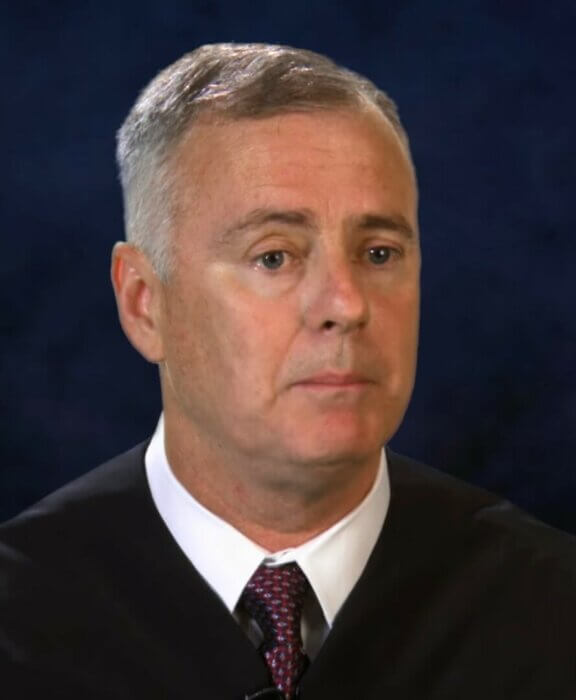Federal District Judge Reed O’Connor’s March 30 decision in Braidwood Management v. Becerra to strike down provisions of the Affordable Care Act’s requirement to cover preventative care — including PrEP — has alarmed health leaders in New York, where advocates held a virtual discussion on April 6 to denounce the ruling and encourage folks to aggressively fight back.
“This is yet another attack on the LGBTQ community, communities of color, and everyone who is at disproportionate risk for HIV,” said out Councilmember Erik Bottcher, who represents Chelsea, Hell’s Kitchen, Greenwich Village, West SoHo, Hudson Square, Times Square, Garment District, Flatiron, and Upper West Side. “We’re not going to take this… we’re not going to accept this. We’re going to fight it because the lives of millions of people are at stake.”
Bottcher added that the community must “get the word out” about efforts to “dismantle these critical programs.”
Protect Our Care New York, which advocates for affordable and equitable care, organized the virtual discussion, which featured a handful of panelists including lawmakers, non-profit leaders, and doctors. The speakers underscored the potential consequences of the ruling on marginalized communities that have relied on the Affordable Care Act’s policies to access much-needed preventative care, including cancer and mental health screenings as well as HIV prevention medication known as PrEP.

O’Connor, a district judge in Texas, has targeted Obamacare for years and has a history of showing hostility to the LGBTQ community. Ahead of the most recent development, he ruled on September 7 of last year that Braidwood Management does not need to cover PrEP in its company healthcare plan due to the religious beliefs of the owner, Steven Hotze. O’Connor also ruled at the time that there were unconstitutional appointments to the federal adviory body that said PrEP should be covered by insurers under the ACA.
Peter Meacher, the chief medical officer at Callen-Lorde Community Health Center, said efforts to make PrEP more affordable over the years have successfully prevented “countless individuals” from becoming HIV-positive. But now there are concerns that the progress could be disrupted.
“We finally have a path to end the epidemic. Why would all of this progress be thrown out?” Meacher asked. “It’s just craziness.”
Making matters worse, the cost barriers could compound existing obstacles to care within marginalized communities, according to Amanda Babine, who is the executive director of the statewide LGBTQ advocacy organization known as Equality New York.
“If [LGBTQ people] are not going to a Callen-Lorde or a GMHC or something like that, they’re going to a lot of these clinics that are not necessarily competent in LGBTQ care, particularly trans individuals and non-binary people who often decide not to go to the doctor because they don’t’ want to be misgendered or don’t want to feel unsafe or uncomfortable,” said Babine, who also stressed the importance of making sure diverse communities are included at the forefront of the advocacy effort.
Access to care — or lack thereof — became a key theme throughout the panel discussion as advocates simultaneously criticized O’Connor’s ruling and discussed ways in which communities can find solutions to the problem.
Jason Cianciotto, GMHC’s vice president of communications and policy, discussed the path forward in New York, saying the key to success in this area is to make medications as accessible as possible. Although the state moved to enact a law last year requiring insurers to cover PrEP, Cianciotto said that coverage only applies to those who have group insurance plans. In 2019, then-Governor Andrew Cuomo issued a regulation requiring insurers to cover PrEP and HIV screenings without cost-sharing.
Cianciotto further noted that State Senator Brad Hoylman-Sigal and Assemblymember Daniel O’Donnell, who are both out gay Democrats representing districts in Manhattan, have introduced legislation that would no longer require prior authorization for PrEP, and GMHC is in favor of implementing a policy that would allow pharmacists to dispense limited supplies of PrEP.
“These three initiatives [would] make New York State a sanctuary state for individuals who are on PrEP,” Cianciotto said.
Dr. Archie Jao, the medical director at Housing Works, underscored the looming impact on patients and said the effects would only be exacerbated by another issue at hand — the fallout stemming from the expectation that the state will overhaul the federal 340B program, which has allowed safety net hospitals and non-profit health providers to distribute discounted drugs and use remaining funds to fund important services for clients.
“In addition to that, to have this going on would absolutely devastate our patients, staff and doctors,” Jao said. “The carve-out alone affects 2.3 million New Yorkers. This decision would affect 150 million Americans. It’s unheard of and I think it’s unconscionable. It will decrease access to PrEP and surely HIV cases will go up if this ruling is permitted to go through.”
Among other areas, the ruling also strips the ACA’s requirements to cover screenings for children as well as heart disease screenings, intimate partner violence screenings, and other preventative services that are collectively utilized by 150 million Americans, according to Protect Our Care New York.
In January of 2021, the Biden administration issued federal guidance directing health insurance companies to provide PrEP coverage at no extra cost, meaning people would not have to pay co-pays or contribute toward their deductibles. The United States Preventative Services Task Force in 2019 gave PrEP an “A” rating, which allowed it to be listed as a preventative service under the ACA.
The Justice Department said it would appeal O’Connor’s ruling, according to reports.




































